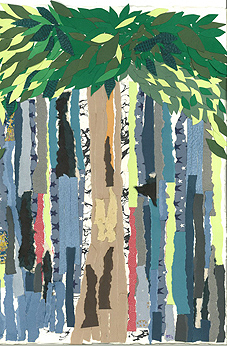Asia in My Life
Ngugi wa Thiong'o
The lead role of an African woman in my drama, The Black Hermit, the first major play ever in English by an East African black native, was an Indian. No make up, just a headscarf and a kanga shawl on her long dress but Suzie Ooman played the African mother to perfection, her act generating a standing ovation lasting into minutes. I dedicated my first novel, Weep Not Child, to my Indian classmate, Jasbir Kalsi, probably as homage to our friendly but fierce intellectual rivalry in our English studies. Ghulsa Nensi led a multi-ethnic team that made the costumes for the play while Bahadur Tejani led the team that raised money for the production. It was not simply at the personal realm. Commerce, arts, crafts, medical and legal professions in Kenya have the marks of the Indian genius all over them. Politics too, and it should never be forgotten that Mahatma Gandhi started and honed his political and organizing skills in South Africa where he spent twenty one years of his life from 1893 leaving for India in 1914. The South African scholar, Masilela Ntongela, places Gandhi squarely as one of the founding intellectuals of what Masilela calls the New African Movement. The honorific Mahatma, the great soul, was first applied to him in South Africa for by the time he left for India, he had already developed his Satyagraha and Ahimsa ready for use in his anti-colonial struggles that eventually led to Indian independence in 1947, an event that had a big impact on anti-colonial struggles in Africa. What India achieved could be realized in Africa! Gandhi kept in touch with politics in Africa, Kenya in particular, and wrote a letter of protest when the British imprisoned one of the early Kenyan nationalists, Harry Thuku, in the 1920s. Gandhi created the tradition of South African Asians at the front line of struggle in South Africa. Ahmed Kathrada was one of the ten defendants in the famous Rivonia trial that would lead him to Robben Island where he spent eighteen years alongside Mandela and others. What Gandhi started Mandela completed. When I met Mandela in Johannesburg soon after his release and becoming President of the ANC party, I came out from the hour-long one on one conversation, struck by the charisma of his simplicity, reminiscent of what people say about Gandhi. The birth of Trade Union Movement in Kenya was largely the work of Pio Gama Pinto and Makhan Singh. Imprisoned by the Kenya colonial authorities repeatedly, Makhan Singh would never give up the task of bringing Indian and African workers together. He was the first prominent political leader to stand in a court of law and tell the British colonial state that Africans were ready to govern themselves, a heresy that earned him imprisonment and internal exile. Kapenguria is usually associated with the trial and imprisonment of Jomo Kenyatta but Makhan Singh preceded him. There have been some Indian political martyrs, the first being the Indian workers executed for treason, by the authorities in the very early days of colonial occupation. Pinto, a hero of the anti-colonial resistance, would be a prominent victim of the post-colonial negative turn in Kenyan politics. Though under a fictional name, Pinto, has been immortalized in Peter Nazareth’s novel, In a Brown Mantle, one of the best literary articulations of the political drama of the transformation of African politics from the colonial to the neo-colonial. Pages: 1 2 3 4 5 6 |
Essays in this Forum
Rethinking the Global South
by Mukoma Wa Ngugi From Indian Literature to World Literature: A Conversation with Satya P. Mohanty by Rashmi Dube Bhatnagar and Rajender Kaur Asia in My Life by Ngugi wa Thiong'o The Global South and Cultural Struggles: On the Afro-Asian People’s Solidarity Organization by Duncan Mceachern Yoon The Fault Lines of Hindi and Urdu by Sanjay Kumar Reframing Colonialism and Modernity: An Endeavour through Sociology and Literature by Gurminder K. Bhambra Varieties of Cultural Chauvinism and the Relevance of Comparative Studies by Tilottoma Misra Literature to Combat Cultural Chauvinism: A Response by Shivani Jha Is There an Indian Way of Thinking about Comparative Literature? by E. V. Ramakrishnan Modernity and Public Sphere in Vernacular by Purushottam Agrawal West Indian Writers and Cultural Chauvinism by Jerome Teelucksingh Oral Knowledge in Berber Women’s Expressions of the Sacred by Fatima Sadiki |
